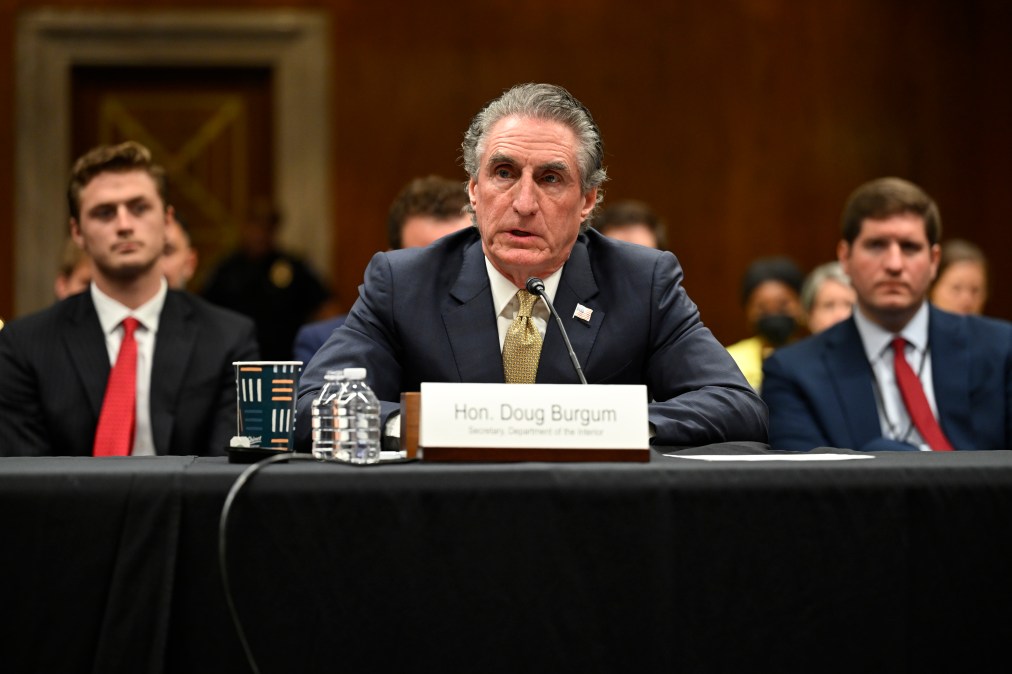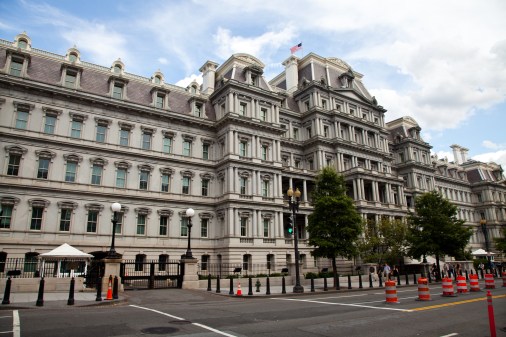Interior exploring AI use to address probate backlog in tribal communities

The Department of the Interior is evaluating the use of artificial intelligence as a potential tool to alleviate the backlog of probate cases it manages in tribal communities, per comments from Secretary Doug Burgum and an agency spokesperson.
“AI technology is being explored to further streamline the probate workflow especially in the realm of data entry and the ability to search multiple databases to find individuals. This is an ongoing internal process,” J. Elizabeth Peace, a spokeswoman for Interior, said in an email to FedScoop.
The backlog of probate cases is a longtime issue for the department that stems from the process through which portions of tribal reservations, known as parcels, are inherited, per a 2024 Congressional Research Service report. When a tribal member dies, their stake in a parcel can be passed on to multiple heirs without the land being divided, creating multiple stakes in a single plot. That issue is commonly referred to as “fractionation.”
Despite attempts from Congress and presidential administrations to address the issue and reduce the amount of fractionation that can happen, Interior’s backlog of probate cases persists. At a recent budget hearing before a panel of House appropriators, Burgum said there are currently 48,000 unresolved probate cases on tribal lands, which is impacting the amount of housing available.
Burgum said tribal leaders have informed him that there are neighborhoods in which “a measurable percentage of the homes have got police tape around it and [are] boarded up” because they’re stuck in probate for years.
“We’ve created some strike teams, but that’s an area where we’re going to have to get creative … [and] this could be an application for AI to dig through this stuff,” Burgum told lawmakers on the House Appropriations Subcommittee on Interior, Environment, and Related Agencies last month. He also noted that there are a limited number of lawyers they have to address the workload.
The system in question that processes probate cases is the Trust Asset Accounting Management System, which per the department website, is administered by the Bureau of Indian Affairs. The system itself was envisioned as something that could help solve the already decades-old issues when it was first introduced, according to a 1999 article from the independent Colorado-based publication High Country News titled “Can computers solve Indian problems?”
The reason probate cases can take so long to resolve, Peace said in response to FedScoop, is because the fractional interests make transferring assets — such as money and property title — more complex. “Gathering documents to prove an individual is an heir to an estate takes time,” Peace said.
As such, AI could be used “to track and monitor complete probate packages,” identify various types of estate distributions, read birth and death certificates to assist with data entry, scan historical data for accuracy, determine if a document has been altered, and scan documents to make sure that a probate package is complete before it’s filed with Interior’s Office of Hearings and Appeals.
Interest in using AI as a solution comes as agencies across the government have been exploring various ways to deploy the buzzy technology for their missions. According to the required annual use case inventory, in December there were roughly 1,700 uses of AI within the executive branch that could be publicly disclosed — though it’s unclear how and whether the Trump administration’s push to cut federal spending, including contracts, has impacted those numbers.
Additionally, the disclosure that AI is being explored comes as the Trump administration faces criticism over cuts to staff and programs across the government, including the BIA. During a Thursday oversight hearing, for example, Rep. Melanie Stansbury, D-N.M., asked Burgum to commit to meeting with tribal leaders and trying to reverse proposed budget cuts to BIA, calling them unsustainable. In response, Burgum said he would be open to meeting with the bipartisan Native American Caucus that Stansbury vice chairs.
Kevin Washburn, a former assistant secretary for Indian Affairs during President Barack Obama’s second term, told FedScoop that while he wasn’t sure if AI is part of the solution, “it certainly should be explored.”
Part of the issue with the backlog is that the estates themselves are often of nominal value, meaning the cost of probate is more than each estate’s worth, Washburn explained in an email. The federal government, no matter the administration, has a responsibility to the heirs of the estates to probate the cases more quickly and accurately. Meanwhile, it also has a responsibility to make sure it doesn’t cost $75 a year to administer an account that is worth less than $1, he said.
“A lot of us don’t fully trust [AI] yet, but if it can be used in a manner that is consistent with the heirs’ privacy and other interests, and it can help produce quicker and more accurate probate results, then it may be a tool that federal personnel should use to address the backlog,” Washburn said.






